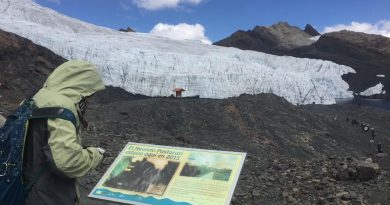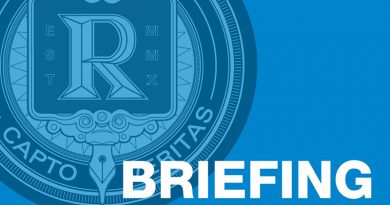MDC Helping To Bridge The Science Gap
Once a week, Miami Dade College student Stephanie Gomez, 19, explores genetics research in a science lab at the University of Miami. She is part of a team identifying the function of a certain group of genes related to autism. Although she’s currently a student here at the College, Gomez gets to delve into basic research throughout an entire semester at UM and gain experience in the field she’s pursuing.
All of this is possible because she is enrolled in the Bridge to the Baccalaureate program.
“If you’re interested in research or any other hands on experience it’s a really good program,” Gomez said.
Gomez, who is studying biomedical engineering at Wolfson Campus, plans to transfer to UM and aspires to work in genetics with the goal of finding the cure for autism. Her program includes taking a biology 2 lab at UM. At Wolfson Campus, her courses include biology 2, calculus 2, the honors college leadership seminar, literature and ballet.
The Bridge Program has been in operation for more than two decades, helping MDC students branch out to experience science research at the University of Miami.
The program is designed for students that are studying in fields of biomedical sciences such as biology, neuroscience, microbiology, and chemistry. Not only does it give the chance for students to take special courses at both institutions, but it also allows students to conduct actual research in a lab and travel to a national science meeting to present research. A couple 100 students have been in the program since its beginning and there are 19 students currently enrolled at all campuses.
“The opportunity to experience the ‘real world’ through authentic research opportunities or the ability to work alongside world renowned scientists is priceless and can set our students apart,” said Heather Belmont, Dean of MDC’s School of Science and Co-Principal Investigator of the program.
Last year was the first time that the College implemented the integrated authentic research lab at MDC and opened it up to more students. It was meant to replace conventional laboratory experience with predetermined answers and expected outcomes. According to Belmont, it allows students to do experiments that test their own ideas and approaches— and succeed or fail like any other scientist in a real lab.
The program is funded through a grant from the National Institute of General Medical Sciences, National Institutes of Health. Over the course of five years, it has received $1.6 million. The Bridge program at UM/MDC is one of nearly 30 sites nation-wide that receive funding from the NIH to promote basic science.
“It opens the eyes of these students that never thought about research science,” said Dr. Michael Gaines, University of Miami biology professor and assistant provost of undergraduate research and community outreach who directs the Bridge program.
Students in the program study at MDC for two years, and afterward they can transfer to UM to get their bachelor’s degree. Students are not required to transfer to UM.
“You would have a foot in the door,” Gaines said.
He said many students have gone on to study at other universities, such as Columbia in New York City.
In order to apply, students have to be a high school senior, a U.S. citizen or permanent resident, and part of an underrepresented group (Black, Hispanic, Asian/Pacific Islander, or Native American).
“The Bridge Program’s primary goal is to increase the number of underrepresented minorities who pursue a doctorate of philosophy degree in the biomedical sciences,” said Belmont, who is the co-principal investigator of the program, along with Gaines.
One of the benefits of the program is that while students get research experience, they also get paid $10 an hour for it.
According to Dr. Michelle Hamlet, from the National Institutes of Health in Bethesda, Maryland, this frees students from the need to get a part-time job and instead focus on their studies. And with taking intensive classes in both institutions during the fall, spring, and summer semesters, students need a lot time to study and stay on top of things.
According to Hamlet, a few drawbacks about the program are that there is no support for tuition or for transitioning to four-year universities.
“It’s more work,” said Vanessa Fleites, 23, a former Bridge student who is now pursuing a Ph.D. in neuroscience at University of Pennsylvania. “But in the end of the day, you benefit from it. I give it credit for being where I am today.”




